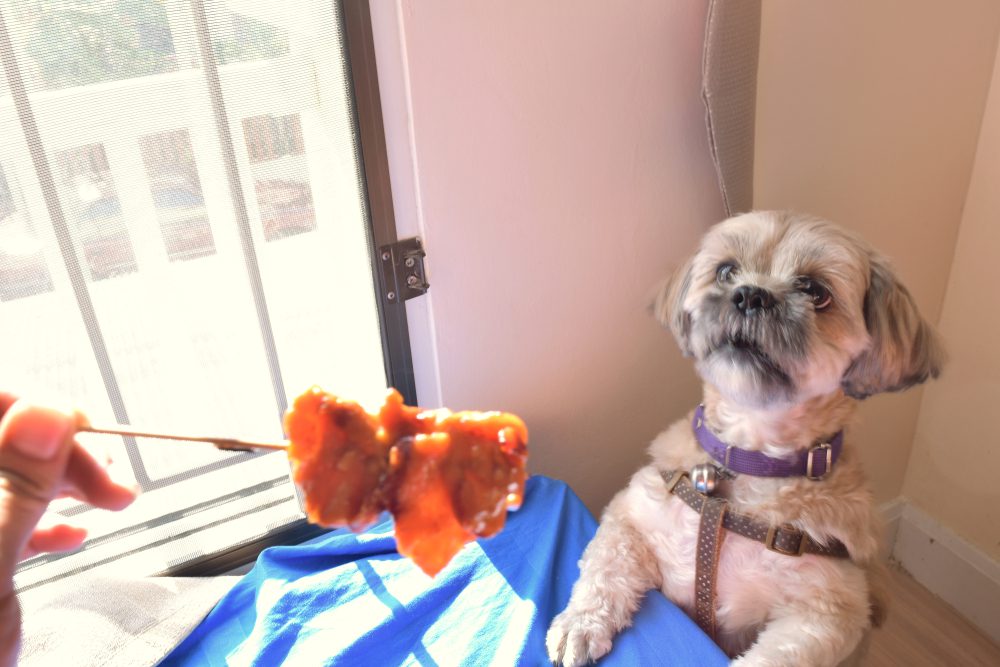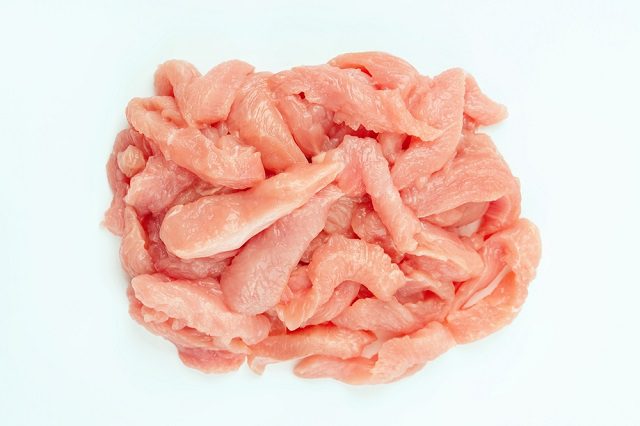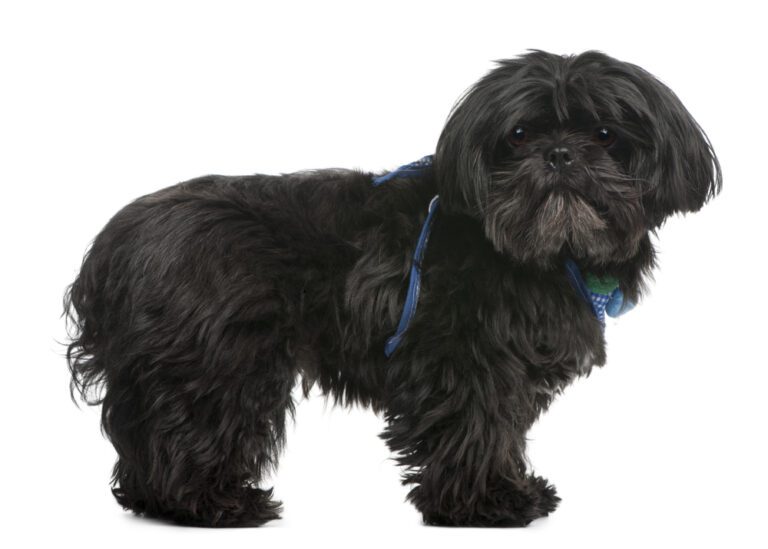Is Your Shih Tzu Allergic to Chicken?
Shih Tzus: those darling little bundles of joy, covered in a luxurious coat of hair, with a contagious zest for life, making them the perfect companion! But it’s not all wagging tails and belly rubs; devoted pet owners like yourself are often plagued with an intriguing question: ‘Is my Shih Tzu allergic to chicken?’. You’re not alone. It’s no secret that food allergies dog our canine friends, and identifying the culprit can be as complicated as an Agatha Christie mystery.
Our four-legged friends may love their chicken treats, but sometimes, love isn’t enough. That harmless piece of poultry might lead to itchy skin, ear infections, and disturbing tummy troubles. This article delves deep into decoding the enigma behind those sneaky chicken allergies. We sift facts from canine fiction and equip you with the information to safeguard your Shih Tzu’s health. Read on, fellow pet parent, as we unravel the mystery and give your Shih Tzu the care they deserve.
Shih Tzu’s Dietary Needs
Like any breed, Shih Tzus has specific dietary needs that must be met for optimal health. While they might not be picky eaters, their nutrition should not be taken lightly. Shih Tzus require a balanced diet of proteins, carbohydrates, fats, vitamins, and minerals to fuel their energetic personalities and maintain their luxurious coats.
Protein is essential to a Shih Tzu’s diet and should represent a good portion of their intake. Proteins are the building blocks of cells and tissues and are crucial in maintaining a healthy immune system. Animal-based proteins like chicken, beef, fish, and lamb are typically the best sources for dogs as they contain all essential amino acids in the right proportions. However, the choice of protein source should be based on the dog’s tolerance.
Aside from proteins, Shih Tzus also needs healthy fats for energy, skin and coat health, and absorption of certain vitamins. Carbohydrates provide additional power and help keep the gut healthy, while vitamins and minerals are necessary for various biochemical reactions. Although the nutritional needs of Shih Tzus are generally similar to other dog breeds, they might be more prone to certain food allergies, which can dramatically affect their diet.
Common Food Allergens for Shih Tzus
Food allergies in dogs can be tricky to deal with because the allergens can be hidden in many commercial dog foods. For Shih Tzus, common food allergens include beef, dairy, wheat, corn, soy, and chicken. These allergens can cause various symptoms ranging from skin issues to gastrointestinal problems.
Food allergies occur when the dog’s immune system mistakenly identifies a certain food protein as harmful and launches an attack. The resulting inflammation can lead to many symptoms, some of which can be severe. It’s important to remember that an allergy differs from food intolerance, a digestive issue and not an immune response.
The exact cause of dog food allergies is still not entirely understood, but genetic and environmental factors are believed to play a role. Certain breeds, including Shih Tzus, appear more predisposed to food allergies, but the reasons for this are unclear. Managing a Shih Tzu’s diet can be crucial in preventing and managing food allergies.
Identifying Allergy Symptoms in Your Shih Tzu
Recognizing the signs of a food allergy in your Shih Tzu is the first step toward managing the condition. Symptoms can vary widely, but some common signs include skin issues such as redness, itching, and hot spots; gastrointestinal problems like vomiting and diarrhea; chronic ear infections; and behavioral changes such as increased scratching or licking.
Bear in mind that other health issues can also cause these symptoms, so it’s essential to consult with a vet to get an accurate diagnosis. Allergic reactions to food usually occur within a few hours to a few days after eating the offending food, but in some cases, symptoms can be delayed.
It’s also worth noting that food allergies can develop at any age. So, even if your Shih Tzu has been eating the same food for years without any problems, they can suddenly develop an allergy to it. Therefore, it is crucial to observe your Shih Tzu’s reaction to different foods and monitor any changes in their health or behavior.
Is Your Shih Tzu Allergic to Chicken?
Now, let’s tackle the question: Is your Shih Tzu allergic to chicken? The answer is it’s possible. While chicken is a common ingredient in many dog foods and is often a favorite among our canine companions, it is also one of the top allergens for dogs, including Shih Tzus.
If your Shih Tzu shows signs of an allergic reaction after eating chicken, such as itching, redness, ear infections, or digestive problems, it’s a strong indicator that they might be allergic. However, these symptoms can also be caused by other food allergens or health conditions, so it’s important to consult a vet before jumping to conclusions.
It’s also important to understand that chicken allergy doesn’t just involve fresh chicken. It can also be triggered by chicken meal, fat, or food containing chicken. So, if you suspect a chicken allergy, you must check all your dog’s food and treats for hidden chicken ingredients.
Diagnosing Chicken Allergy in Shih Tzus
Diagnosing a chicken allergy in your Shih Tzu involves a combination of dietary elimination trials, clinical examination, and, in some cases, specific allergy tests. The process can be time-consuming and requires a lot of patience, but it’s essential for managing the allergy effectively.
The elimination diet involves removing all potential allergens from your dog’s diet and then gradually reintroducing them individually to identify the culprit. This process can take several weeks to months, but it’s often the most reliable method for diagnosing food allergies.
If the elimination diet is inconclusive, your vet may recommend allergy testing. However, these tests are not always accurate for food allergies, and the results should be interpreted in conjunction with the dog’s clinical history and response to dietary changes.
Treatment and Management of Chicken Allergy
Once a chicken allergy is diagnosed in your Shih Tzu, the primary treatment is to avoid chicken in all forms. This means avoiding fresh chicken and checking all commercial dog foods, treats, and certain medications for hidden chicken ingredients.
In the case of accidental exposure or severe allergic reactions, your vet may prescribe medications to control the symptoms. However, the mainstay of treatment is strict dietary avoidance of chicken.
Managing a chicken allergy also involves regular monitoring and follow-ups with your vet to ensure that the allergy is controlled and that the diet meets all your Shih Tzu’s nutritional needs. It’s also important to monitor your dog’s tolerance to other proteins, as dogs with one food allergy are often at risk of developing allergies to different foods.
Diet Alternatives: What to Feed a Shih Tzu Allergic to Chicken
If your Shih Tzu is allergic to chicken, you must find alternative protein sources. Other animal-based proteins such as beef, fish, or lamb might be suitable options, but it depends on your Shih Tzu’s tolerance. Some Shih Tzus might also do well on novel proteins like venison, rabbit, or kangaroo.
Many commercial dog foods are also available that are formulated without common allergens like chicken. These hypoallergenic diets can be a good option for dogs with food allergies. However, it’s important to read the labels carefully to ensure no hidden chicken ingredients.
When choosing an alternative diet, it’s important to ensure that it is nutritionally balanced and meets all your Shih Tzu’s dietary needs. A vet or a pet nutritionist can help you design a suitable diet plan for your Shih Tzu.
Prevention Tips: How to Avoid Chicken Allergy in Shih Tzus
One of the best strategies is to rotate your Shih Tzu’s diet. This involves changing the protein source every few months to prevent overexposure to one protein.
Feeding a varied diet from a young age can also help to promote a healthy immune response and reduce the risk of allergies. However, it’s important to introduce new foods gradually and monitor your Shih Tzu for any adverse reactions.
Regular vet check-ups are also essential for early detection and management of food allergies. If you notice any signs of an allergy, it’s best to consult with your vet as soon as possible.
Conclusion
In conclusion, chicken allergy in Shih Tzus is a real concern, but it can be handled effectively with careful observation of symptoms, proper diagnosis, and effective management. Awareness of your Shih Tzu’s dietary needs and potential allergens can go a long way in ensuring their well-being and happiness. Remember, every Shih Tzu is unique, and what works for one might not work for another. Working closely with your vet to develop a diet plan that suits your Shih Tzu’s needs is essential. After all, our furry friends deserve the best care we can provide!
FAQ’s
What are the signs of a chicken allergy in Shih Tzus?
Look for itching, red skin, chronic ear infections, hair loss, and gastrointestinal issues like vomiting or diarrhea.
How can I confirm if my Shih Tzu is allergic to chicken?
Consult a veterinarian who can recommend an elimination diet, where chicken is removed from the diet for a period, or perform allergy testing.
What can I feed my Shih Tzu if they are allergic to chicken?
Consider alternative protein sources like lamb, fish, or novel proteins such as rabbit or kangaroo. Ensure any new food is balanced for a dog’s nutritional needs.
Are any specific dog food brands recommended for Shih Tzus with chicken allergies?
Many brands offer limited-ingredient diets that exclude common allergens like chicken. Look for products labeled as hypoallergenic or formulated for sensitive skin.
Can a chicken allergy develop later in a Shih Tzu’s life?
Yes, allergies can develop at any age. A dog that has been fine with chicken previously can develop an allergy over time.









